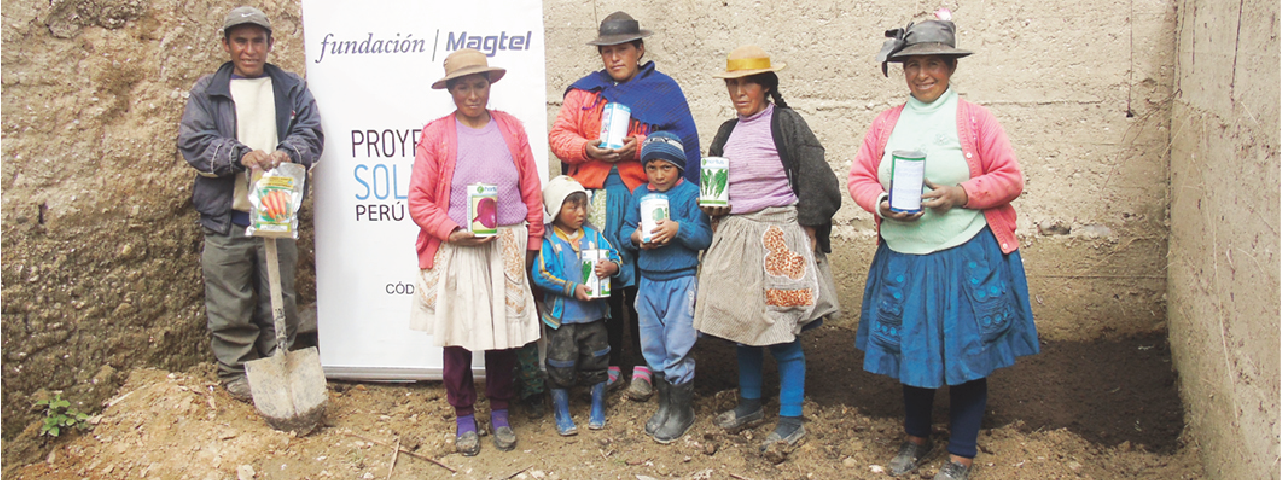The initiative financed by the Córdoba Provincial Council is the result of a partnership between the Posadas City Government, the Proyecto Solidario por la Infancia – Peru and the Salcabamba municipality.
The Magtel Foundation is participating in a project to improve the crop systems used in Peru’s Cedropampa community. The aim is to provide 15 families with the necessary equipment and training to install a sprinkler irrigation system in their small agricultural operations.
Thanks to this initiative, Cedropampa residents will be able to increase production by harvesting twice yearly as opposed to only once per year. This will enable members to earn more money, thereby lowering the social exclusion levels of this village, one of the poorest in the Andean nation.
The planned actions are aligned with the community’s traditional practices and the Andean world view promoted by the harmonious and positive relationship between nature, humans and Mother Earth. As part of this project, efforts are made to train farmers, use natural compost and restore traditional crops.
Additionally, the “Cedropampa Irrigation Committee” was created by the community’s Quechua women. This community organization is backed by the Salcabamba municipality. Female participants are receiving training and technical assistance on how to manage and maintain the irrigation systems, as well as on the efficient use of water. This strengthens the social and active presence of women in rural areas along with their role in local governance, and it also helps reduce gender inequality.
Cedropampa community
Cedropampa belongs to the Salcabamba district and is located between the Western and Eastern Ranges of the Andes Mountains, in Peru’s central region. According to the 2007 census, this village is made up of approximately 100 families with limited resources and without access to basic services such as a public water system. However, Cedropampa has a significant amount of water resources and extensive farmland for agriculture that require a project of this type to optimize their use.
The project gave priority to 15 indigenous families, with a special focus on women and girls in light of the discrimination they frequently face. Additionally, there was always a team of professionals who speak Quechua, the residents’ mother tongue, making it easier to communicate and respect the cultural diversity.
Participating entities
The project to improve shared water use is the result of efforts by the Posadas City Government and the Magtel Foundation. The local partners in Peru are the Proyecto Solidario por la Infancia and the Salcabamba municipality to which Cedropampa residents belong. Funding is provided by the Córdoba Provincial Council as part of its 2016 call for International Cooperation for Development.
The Magtel Foundation provides the technical consulting needed for the project’s management and execution, along with the experience obtained by its parent company, Magtel, in similar water cycle management projects.
Preliminary analysis
The joint effort of the Spanish and Peruvian entities resulted in a preliminary analysis of the situation. The main issues identified were the limited resources among families, the minimal involvement of women in the community’s local development and the insufficient access to water for irrigation purposes.
Using this analysis, a project was designed that would address these needs, taking into consideration the proposals received from the Salcabamba community, which was actively involved in the project, and from the participating public and private institutions.

